Month: September 2017
-
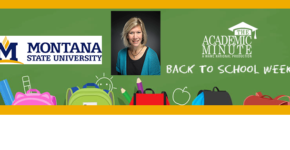
Tricia Seifert, Montana State University – College Student Success
The path to success for college students is a well-traveled one – graduate and find a good paying job. Tricia Seifert, associate professor of adult and higher education at Montana State University, explores whether a different path might be needed in the future. Tricia Seifert is an associate professor in the Adult & Higher Education…
-
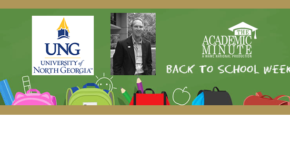
J. Michael Rifenburg, University of North Georgia – Educating Student Athletes
How can we better educate student athletes? J. Michael Rifenburg, associate professor of English at the University of North Georgia, looks into how to use their minds in the classroom as they do on the field. Dr. J. Michael Rifenburg is an associate professor of English and director of first-year composition at the University of…
-
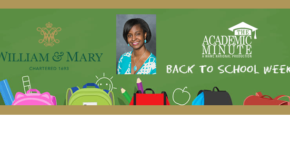
Stephanie Blackmon, College of William & Mary – MOOCs
What are MOOCs? Stephanie Blackmon, assistant professor of higher education at the College of William & Mary, discusses whether these online courses can have a positive effect on higher education. Stephanie J. Blackmon, Ph.D. is an Assistant Professor of Higher Education in the School of Education at William & Mary. Her research area is teaching…
-
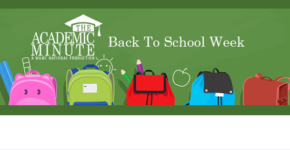
This Week on The Academic Minute (2017.9.11) – BACK TO SCHOOL WEEK
This Week on The Academic Minute 2017.9.11 Monday, September 11th Stephanie Blackmon of the College of William & Mary explores whether open online courses can foster community between a university and its surrounding area. Tuesday, September 12th J. Michael Rifenburg of the University of North Georgia discusses how to better educate student athletes. Wednesday, September 13th…
-
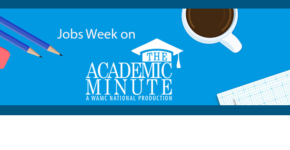
The Academic Minute for 2017.9.4-9.8 – JOBS WEEK
Academic Minute from 9.4- 9.8 Monday, September 4th Sarah Moore – University of Puget Sound Millennial Workers Sarah Moore is Professor and Chair of the Department of Psychology at the University of Puget Sound. Since joining the faculty in 1993, her research has focused on the effects of work-related stressors, such as layoffs, reengineering, and…
-
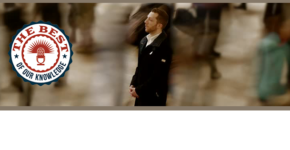
Bella DePaulo featured on The Best of Our Knowledge
As always, host Bob Barrett selects an Academic Minute to air during The Best of Our Knowledge. Each week this program examines some of the issues unique to college campuses, looks at the latest research, and invites commentary from experts and administrators from all levels of education. For this week‘s edition (#1407), Bob has selected…
-
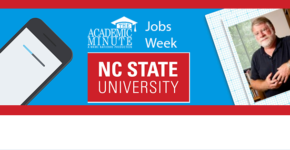
David Zonderman, North Carolina State University – Labor Unions
We hear a lot of negative news about labor unions. David Zonderman, professor of history at North Carolina State University, discusses how labor unions came to flourish and whether they should play an important part of our future. David A. Zonderman is an Alumni Distinguished Undergraduate Professor and Department Head in History at North Carolina…
-
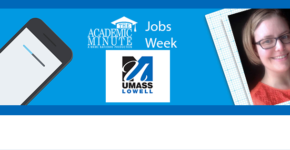
Kacey Beddoes, University of Massachusetts Lowell – Wage Gap
Do women negotiate for higher salaries at the same rate as men? Kacey Beddoes, assistant professor of sociology at the University of Massachusetts Lowell, discusses new insights into that question and implications of how the wage gap is explained. Kacey Beddoes is an Assistant Professor of Sociology and Faculty Associate of the Center for Women…
-
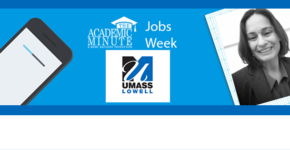
Kimberly Merriman, University of Massachusetts Lowell – Gig Work
Temporary workers are playing a bigger part in our economy. Kimberly Merriman, associate professor in the department of management at the University of Massachusetts Lowell, examines gig work and why it’s increasing. Dr. Merriman is a widely published scholar and a recognized authority on compensation by sources such as the Wall Street Journal and The…
-
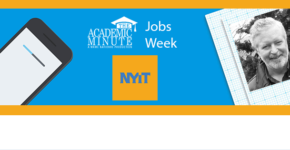
Kevin LaGrandeur, New York Institute of Technology – A.I. Taking Jobs
The robots are coming for our jobs. Kevin LaGrandeur, professor in the department of English at New York Institute of Technology, explains why artificial intelligence is the biggest job killer in our society. The scholarly work of Kevin LaGrandeur proves that the humanities and sciences have more in common than meets the eye. His book,…
